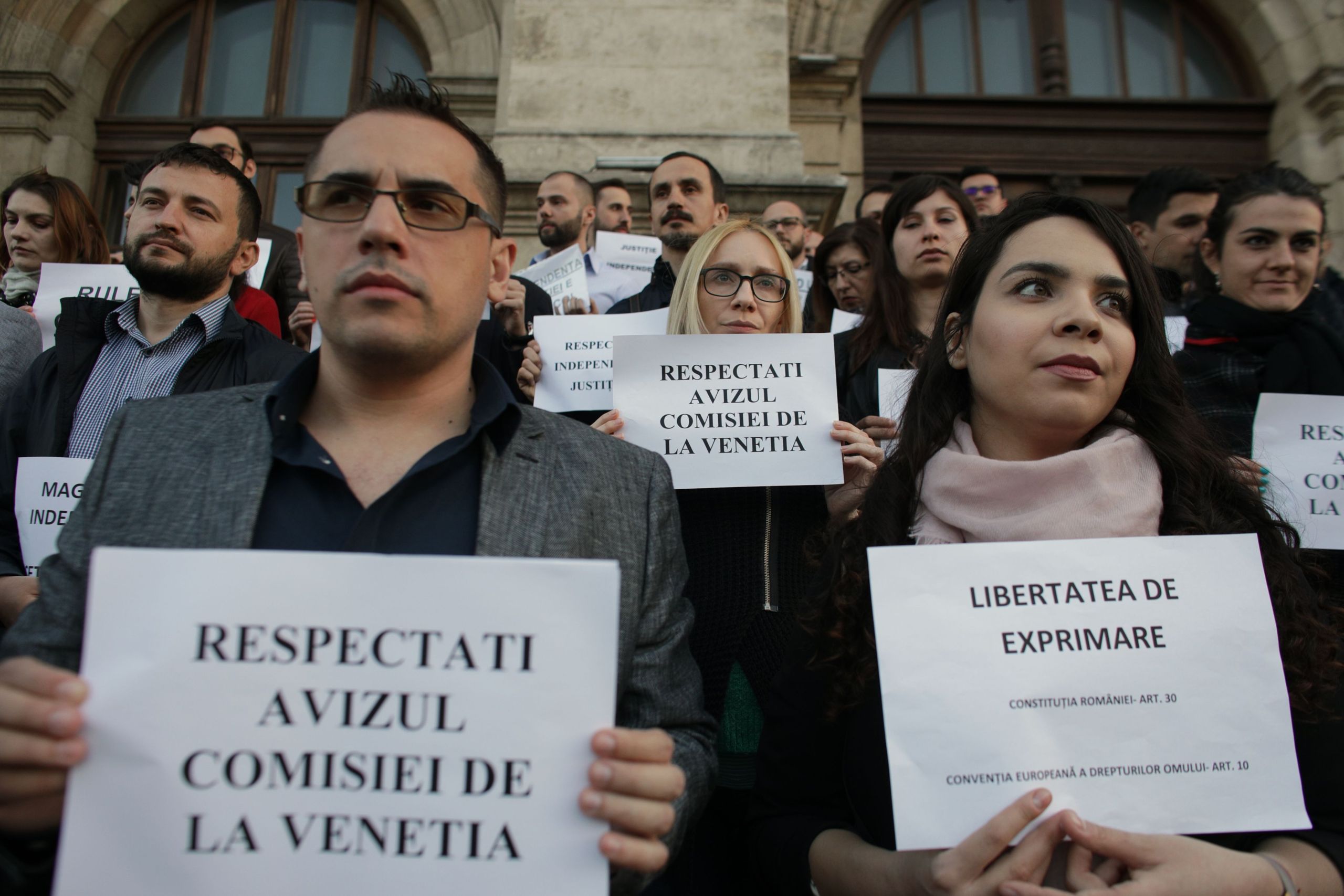
They messed up, according to the Venice Commission and to the opinion that was just published (read it here). A recap: on the 21st of January 2022, the Justice Ministry (led by Cătălin Predoiu) publishes online a legislative proposal for disbanding SIIJ (the section for investigating magistrates) We ask for a public debate, to show that what's written in the proposal is not ok. We also ask, on the first of February, not to play political games and treat the issue correctly, waiting for the opinion of the Commission, if they feel lost. But nope: on the 21st of February, 2022, MPs ticked a task which has been dragging on since the Dragnea era, fulfilling, apparently, a promise that PNL and USR had made in the election campaign: concretely, they voted in plenary the “rebranding” bill of the Special Section.
What does the Commission say in the 11-page opinion, which contains 40 points? We list the last four, which are taken from the chapter "conclusions":
- The Venice Commission regrets the haste with which this controversial law on the abolition of the SIIJ passed through parliament and was enacted, which meant that the law was adopted before the Commission could give its opinion.
- The abolition of the SIIJ should not be an end in itself. The aim of the abolition of the SIIJ should be to ensure greater effectiveness in the investigation and prosecution of crimes - most importantly corruption - committed by judges and prosecutors. It is unlikely that a structure of non-specialized prosecutors in the prosecutor's offices attached to the Courts of Appeal and the High Court of Cassation and Justice will be more apt to investigate allegations of corruption of judges and prosecutors than the structure of the current specialized prosecutor's office - DNA. Given the relative autonomy of DNA and DIICOT and their functional independence, specialization, experience and technical means at their disposal, the Venice Commission regrets that, unlike the draft law it assessed in its previous 2021 opinion (project that would have restored the situation before the changes in 2018), the legislator did not restore the powers of these specialized prosecutor's offices. Accordingly, the Venice Commission recommends re-establishing the powers of these specialized prosecutor's offices to investigate and prosecute the offenses of judges and prosecutors falling within their jurisdiction.
- In addition, as pointed out in the 2021 opinion, the way the vexatious procedure is applied (in the case of complaints - often criminal complaints - made by private individuals against judges and prosecutors) needs to be urgently reformed. In addition, as an additional priority, the operational rules under which criminal prosecution cases may be removed from the competence of specialized prosecutor's offices if others are investigated together with magistrates need to be reviewed and / or additional safeguards need to be put in place to take such action. of files provided.
- Finally, if the law is maintained in its current form, the Venice Commission recommends that the SCM's prosecution section be given greater involvement in selecting prosecutors appointed to investigate crimes by judges and prosecutors, in order to comply with the law. the institutional design of the SCM, to provide for a competitive selection procedure and a clearer delimitation of some of the criteria for the appointment (and termination of this appointment) of the appointed prosecutors, as well as a longer appointment period.
- As the abolition of the SIIJ is only a first step in a broader package of reform measures, the Venice Commission encourages the Romanian authorities to continue this broader reform process and remains at the disposal of the Romanian authorities and Parliament for any further assistance. be necessary.
If you are familiar with these arguments of the Commission, you may have heard them heard by a section of civil society in which we are included. We don't know what to do now: maybe we should stop pretending that this sham of abolition is OK, maybe it's time for the rulers to take on this failure. How? By an honorary resignation of the Minister of Justice.
Foto: Octav Ganea / Inquam Photos



